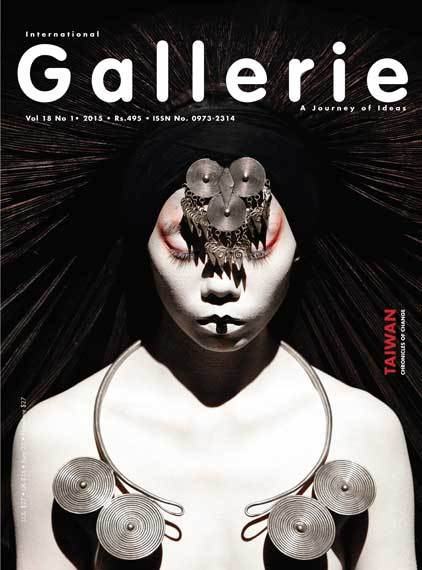In Part 2 of this conversation, Janice Sands, Executive Director of Pen and Brush, speaks with Bina Sarkar Ellias of International Gallerie about gender equity in the arts and insights for women looking to make a career in art or literature.
Janice Sands (JS): What is your view on gender inequality in the arts? Do you think that the art world can address it in a deeper way on a global scale?
Bina Sarkar Ellias (BSE): While it has taken centuries for women to evolve in every field, it is energizing to note that women since the 60s are increasingly claiming their space in the world. Women in the arts are a growing phenomenon, especially in strong feminist and political art. In India, we have Nalini Malani, Rekha Rodwittya, Navjoy Altaf, Shilpa Gupta, Jaishri Abhichandani and Chitra Ganesh (based in NY) and amongst others; the neighboring region of Pakistan has Aisha Khalid, Shahzia Sikander (in NY), Saira Wasim (US), Bani Abidi (in Berlin), Nilofer Akmut (in UK) to name a few, and Bangladesh has Rokeya Sultana, Tayeba Lipi, Rana Begum, Nazia Preema amongst others. Nepal has its own voices: Ragini Upadhyay Grela, Ashmina Ranjit and Erina Tamrakar. And these are just in the visual arts, there has also been a recent wave of writing by women that is are meaningful and vibrant.
JS: As you have pointed out, and we at Pen and Brush work to prove the point, there is no lack of talented women artists and writers creating work that is meritorious, there needs to be more access to opportunity.
BSE: Yes, not merely in the arts and literature, but in all professional spaces at a global scale. It still is a discriminatory world and we need to consistently have our voices heard. Often, women are known to be their own enemies. Art at various levels through education must empower the girl child in schools, while educating the male child as well, with a balanced understanding of gender issues. Re-educating adult men and women who hold preconditioned gender views is also crucial.
JS: We agree. While in 1894, visionary individuals like Janet and Mary Lewis initiated the Pen and Brush as a way to bring women together in a concerted effort to forge their own way as artists and writers in New York City, it is critical now, after over a hundred and twenty years, that women of the world unite through the discourse of literature and the arts, and through significant education on gender issues.
JS: What advice would you give to women looking to have a career in the arts and literature? Would your advice be the same or different for women creating in first world versus developing countries?
BSE: I would urge women wherever they live - if they have an inclination for the arts and literature, or other creative forms such as music, dance, theatre, photography and cinema, to pursue them with a singular passion because the joy and learning they offer cannot be quantified. The arts get under your skin and nourish your soul and even though you arrive in the world with nothing, these are the treasures you take with you.

